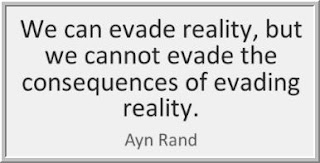Expert performers hear a different music, dance a different dance.
I recall a meeting years ago with a market great, Victor Niederhoffer, who experimented with turning market time series into musical sounds. Done the right way, you could follow the market "music" and become exquisitely sensitive to shifts in pace, tone, etc. Good traders look at charts and market data uniquely. Great traders look at unique things.
An important step in my trading development occurred when I encountered the work of John Ehlers and began to view market time series as multidimensional, incorporating elements of trend and cycles. Understanding those dimensions made it far more clear when markets can be expected to continue their recent direction and when they can be expected to reverse. Volume dictates the pace of movement; trends and cycles define the path. It's a kind of music a trader can "dance" to, but the odds are good that the dance will seem insane to those looking at one-dimensional chart patterns or fundamental relationships.
An important thesis of the Trader Performance book is that our performance proceeds in two phases: the development of competence and the development of expertise. The process of building competence involves what we saw in the last post: mirroring the actions of capable mentors. Expertise development is quite different. That begins when we synthesize the inputs and influences of multiple mentors and experiment with the insights that result from this synthesis. Many problems in trading psychology and performance occur when we do not follow this developmental sequence. We try to figure out markets on our own without proper mentoring. We settle for copying others without finding our own integration of their ideas and influences.
Pursue your development the right way: first find and copy the masters and then hold onto pieces of what they teach you that truly resonate. Those are the practices that mesh with your strengths and that ultimately hold the greatest potential for your performance. Others won't hear your music and may view you as a bit insane when you dance to your own tune. That's OK. No one ever achieved great things by staying safely within the realm of consensus.
Further Reading:
Radical Renewal - an online book on the spirituality of trading
.







